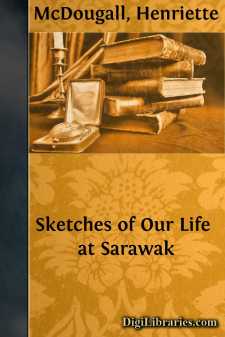Categories
- Antiques & Collectibles 13
- Architecture 36
- Art 48
- Bibles 22
- Biography & Autobiography 815
- Body, Mind & Spirit 144
- Business & Economics 28
- Children's Books 18
- Children's Fiction 14
- Computers 4
- Cooking 94
- Crafts & Hobbies 4
- Drama 346
- Education 58
- Family & Relationships 59
- Fiction 11834
- Games 19
- Gardening 17
- Health & Fitness 34
- History 1378
- House & Home 1
- Humor 147
- Juvenile Fiction 1873
- Juvenile Nonfiction 202
- Language Arts & Disciplines 89
- Law 16
- Literary Collections 686
- Literary Criticism 179
- Mathematics 13
- Medical 41
- Music 40
- Nature 179
- Non-Classifiable 1768
- Performing Arts 7
- Periodicals 1453
- Philosophy 65
- Photography 2
- Poetry 896
- Political Science 203
- Psychology 44
- Reference 154
- Religion 515
- Science 126
- Self-Help 85
- Social Science 82
- Sports & Recreation 34
- Study Aids 3
- Technology & Engineering 59
- Transportation 23
- Travel 463
- True Crime 29
Our website is made possible by displaying online advertisements to our visitors.
Please consider supporting us by disabling your ad blocker.
Sketches of Our Life at Sarawak
Description:
Excerpt
CHAPTER I.
Nearly thirty years ago I published a little book of "Letters from Sarawak, addressed to a Child." This book is now out of print, and, on looking it over with a view to republication, I think it will be better to extend the story over the twenty years that Sarawak was our home, which will give some idea of the gradual progress of the mission.
This progress was often unavoidably impeded by the struggles of the infant State; for war drowns the voice of the missionary, and though the Sarawak Government always discouraged the Dyak practice of taking the heads of their enemies, still it could not at once be checked, and every expedition against lawless tribes, however righteous in its object, excited the old superstitions of those wild people. When their warriors returned from an expedition, the women of the tribe met them with dance and song, receiving the heads they brought with ancient ceremonies—"fondling the heads," as it was called; and for months afterwards keeping up, by frequent feasts, in which these heads were the chief attraction, the heathen customs which it was the object of the missionary to discourage.
I dare say, when we first settled at Sarawak, we thought that twenty years would plant Christian communities, and build Christian churches all over the country: but it is as well that we cannot overlook the future; and perhaps, considering the many difficulties which arose from time to time, from the missionaries themselves, and the unsettled country in which they laboured, we ought not to expect more results than have appeared. At any rate we have much to be thankful for, and as every year makes Sarawak a more important State, consolidates its Government, and extends civilization to its subjects, we may look for more success for the missionaries, who can now point to the peace and prosperity of the people, and say, "This is the fruit of Christianity and Christian rulers."
In giving a short account of our life in Borneo, I shall avoid alike all political questions, or, as much as possible, individual histories among the English community. It is already so long ago since we lived in that lovely place, that events, trials, joys, and the usual vicissitudes of life, are wrapt in that mellowing haze of the past, which, while it dims the vividness of feeling, throws a robe of charity over all, and perhaps causes actors and actions to assume a more true proportion to one another than when we walked amongst them. I have, however, not depended on memory alone for the records of twenty years, but have journals and letters to refer to, which my friends in England have been good enough to keep for me. Some parts of "Letters from Sarawak" I shall incorporate into the present little book, for as it treats of the first six years we lived there, and was written at that time, it is sure to be tolerably correct.
In those days, from 1847 to 1853, Sir James Brooke was very popular in England. The story of his first occupation of Sarawak, published in his journals, and the cruizes of her Majesty's ships in those eastern seas—the Dido and the Samarang—were read with avidity, and furnished the English public with a romance which had all the charm of novelty....


